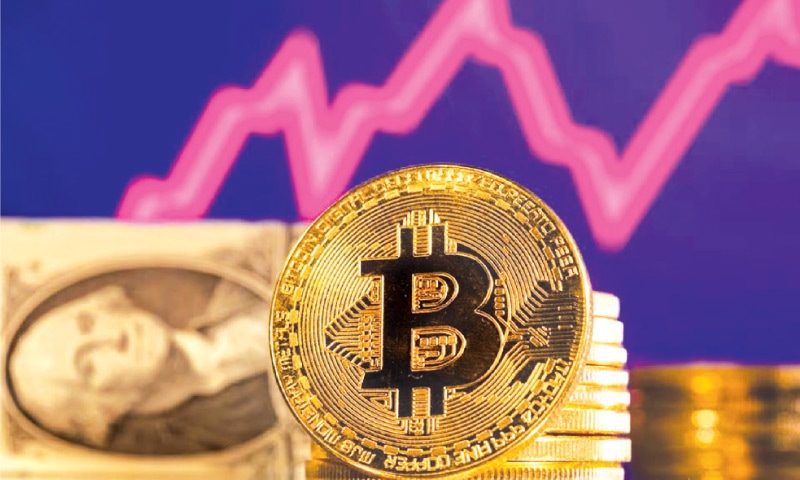
Pakistan’s financial landscape is on the brink of transformation as the world embraces cutting-edge technologies like artificial intelligence (AI), blockchain, and cryptocurrency. These innovations have the potential to revolutionize the way investments are managed, financial transactions are conducted, and economic growth is fostered. While Pakistan faces numerous challenges such as economic volatility, lack of financial literacy, and limited access to modern financial instruments, the country has an opportunity to harness global breakthroughs to modernize its financial sector.
In this article, we will explore the future of finance and investments in Pakistan, taking inspiration from international trends and highlighting how the country can leapfrog some of its existing problems by embracing technology-driven solutions like AI and cryptocurrency.
Global Financial Innovations Shaping the Future
Around the world, countries are adapting rapidly to new financial technologies that promise efficiency, transparency, and democratization of investment opportunities. These global trends offer valuable lessons for Pakistan as it seeks to modernize its financial infrastructure.
1 Cryptocurrencies and Blockchain Technology
Cryptocurrencies like Bitcoin, Ethereum, and stable coins are disrupting traditional banking systems globally. Blockchain, the underlying technology of cryptocurrencies, provides a decentralized, transparent, and secure way of recording transactions, eliminating the need for intermediaries like banks. According to a report by PwC Global, blockchain technology could boost the global economy by $1.76 trillion by 2030 through increased efficiency and transparency.
Countries like El Salvador have taken bold steps by adopting Bitcoin as legal tender, while others, such as Switzerland, have integrated blockchain into their financial systems to streamline processes like cross-border transactions and asset management. Moreover, central bank digital currencies (CBDCs), such as the digital yuan in China and the pilot digital euro, highlight how governments can leverage blockchain to issue digital versions of their national currencies.
2 Artificial Intelligence in Finance
AI is revolutionizing every aspect of finance, from investment decision-making to customer service and fraud detection. McKinsey & Company reports that AI technologies can unlock $1 trillion of incremental value for global banks annually, making financial systems more efficient, personalized, and secure. AI-powered tools are increasingly being used for algorithmic trading, credit scoring, and risk assessment, allowing for more accurate and data-driven decisions.
In the US, AI-based robo-advisors like Betterment and Wealthfront manage billions in assets by providing affordable, personalized financial advice without human intervention. This trend of automation and intelligent systems is spreading globally and redefining how investors interact with financial markets.
3 Fintech and Digital Banking Revolution
The fintech boom has democratized finance by making services like payments, loans, and investments accessible to a broader audience through digital platforms. The rise of neo banks, which operate entirely online, offers consumers a low-cost alternative to traditional banking. Countries like India, through platforms like Paytm and Razorpay, have set a global example of how fintech can scale rapidly and bring financial inclusion to millions of underserved individuals.
Moreover, blockchain-based decentralized finance (DeFi) platforms are allowing people to borrow, lend, and trade without intermediaries, providing individuals with greater control over their financial transactions.
The Future of Finance in Pakistan: Challenges and Opportunities
Pakistan’s financial sector, while growing, is still riddled with structural challenges. The country is plagued by high inflation, a depreciating currency, limited access to financial services, and low participation in formal investment markets. However, with inspiration from global financial innovations, Pakistan has the potential to address these challenges and create a more inclusive and efficient financial ecosystem.
1 Cryptocurrencies and Blockchain: A New Era for Pakistan
Pakistan has been slow in adopting cryptocurrencies due to regulatory concerns. The State Bank of Pakistan (SBP) has, so far, refrained from legalizing cryptocurrencies, citing fears related to money laundering, tax evasion, and lack of investor protection. However, neighboring countries like India are already experimenting with cryptocurrency regulation, which could serve as a model for Pakistan.
By creating a well-regulated environment for cryptocurrency trading and blockchain innovation, Pakistan can tap into the global crypto market, which was valued at over $1 trillion in 2023 according to CoinMarketCap. Blockchain can also improve transparency in government operations, reduce corruption, and enhance efficiency in sectors like supply chain management, health, and agriculture.
One area where blockchain can be particularly transformative is remittances. Pakistan relies heavily on remittances from overseas workers, which amounted to over $31 billion in 2021, according to the World Bank. Blockchain-powered remittance platforms can drastically reduce the cost and time of cross-border transactions, benefiting both senders and recipients by offering a cheaper, faster alternative to traditional channels.
2 Artificial Intelligence: Enhancing Investment Strategies
The use of AI in finance could revolutionize investment management in Pakistan by making it more data-driven and less prone to human biases. As seen globally, AI-powered robo-advisors can help democratize investment advice in Pakistan by offering affordable and personalized financial planning to individuals who may not have access to traditional financial advisors.
Moreover, AI can improve risk assessment and lending processes. In a country where access to credit is limited, particularly for small and medium-sized enterprises (SMEs), AI-driven credit scoring models could offer a more accurate and inclusive way of determining creditworthiness. This would open up new avenues of credit to underserved populations and businesses.
The adoption of AI for fraud detection and regulatory compliance can also enhance the integrity of Pakistan’s financial system, protecting both consumers and institutions from financial crime.
3 Fintech and Digital Financial Inclusion
Fintech has immense potential in Pakistan, where nearly 79% of the adult population remains unbanked, according to the World Bank Global Findex. Platforms like Easypaisa and JazzCash have already revolutionized mobile payments, but there is still significant room for growth in areas like digital banking, microloans, and peer-to-peer lending.
Pakistan can take inspiration from India’s Unified Payments Interface (UPI), which has become one of the world’s most successful digital payments systems, handling over $1 trillion in transactions annually. A similar interoperable payments platform could significantly enhance digital financial inclusion in Pakistan, allowing millions of people to access affordable financial services directly from their mobile phones.
Moreover, digital lending platforms powered by AI and machine learning can provide microloans to SMEs and individuals with no credit history, helping them grow businesses and improve their economic well-being
How Pakistan Can Learn from Developed Nations
To fully realize the potential of these financial innovations, Pakistan must take cues from developed nations that have successfully implemented them. Key areas of focus include:
1 Regulatory Frameworks for Cryptocurrency and Blockchain
While the regulatory stance on cryptocurrencies remains cautious, Pakistan can follow countries like Japan and Singapore, which have enacted clear regulations to govern cryptocurrency exchanges and digital assets. Establishing a legal framework will provide the clarity needed for investors, fintech companies, and blockchain developers to operate without fear of legal reprisals.
The Financial Action Task Force (FATF), which Pakistan is a part of, has set global standards for cryptocurrency regulation to mitigate risks related to money laundering and terrorism financing. Aligning Pakistan’s policies with these standards will allow the country to participate in the global crypto economy while ensuring regulatory compliance and investor protection.
2 Investment in AI and Fintech Infrastructure
Developed countries like the US, China, and the UK have poured significant resources into AI research and development. Pakistan must do the same by investing in AI talent and infrastructure to remain competitive in the global market. Encouraging collaboration between universities, tech startups, and financial institutions can foster innovation in AI-driven financial solutions, from robo-advisors to fraud detection systems.
The government should also provide incentives for fintech startups to develop solutions aimed at improving financial inclusion and expanding access to investment opportunities. Public-private partnerships could accelerate the growth of Pakistan’s fintech ecosystem.
3 Building Digital Literacy and Financial Education
For any of these technological advancements to succeed, Pakistan must first address the low levels of digital literacy and financial awareness. According to the Pakistan Microfinance Network (PMN), only 22% of the population is financially literate. To bridge this gap, the government and private sector should collaborate to launch nationwide campaigns focused on financial literacy, particularly in rural areas and among women, who are often excluded from formal financial systems.
Conclusion
The future of finance and investments in Pakistan hinges on embracing global innovations like AI, cryptocurrency, and blockchain, which have the potential to address some of the country’s most pressing financial challenges. While regulatory hurdles, limited financial literacy, and infrastructural gaps remain, Pakistan can take inspiration from countries that have successfully integrated these technologies into their financial systems.
By creating a supportive regulatory environment, investing in digital and AI-driven financial services, and expanding financial education, Pakistan can position itself to participate in the next wave of global financial transformation. This will not only foster economic growth but also bring millions of unbanked and underserved individuals into the formal financial system, driving broader financial inclusion and prosperity.
Spread the word
Previous Story
